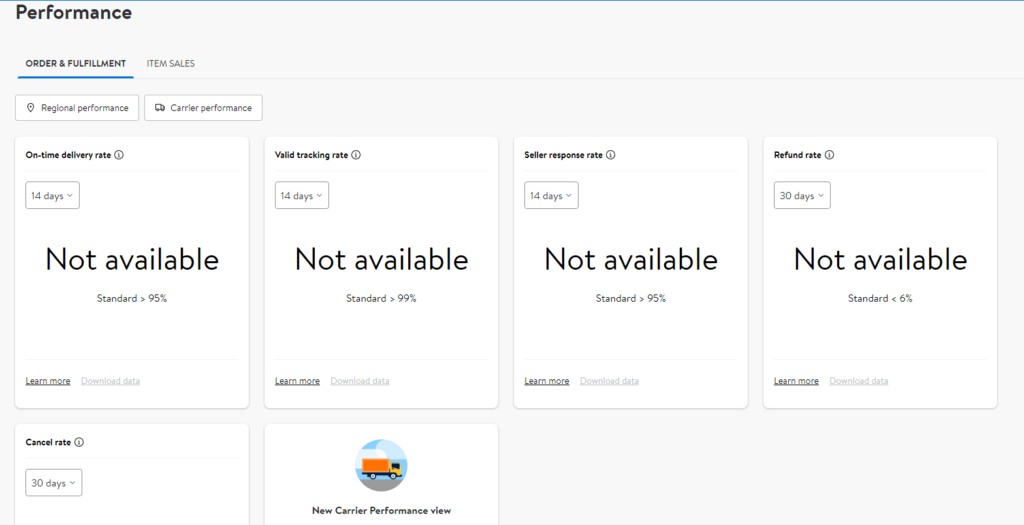Essential Walmart seller policies every seller must know, understanding Walmart’s seller policies is fundamental for any business aiming to succeed on this highly competitive platform. Walmart Marketplace offers tremendous opportunities, but navigating its policies can be challenging.
This guide is designed to provide you with a comprehensive understanding of Walmart’s seller requirements and policies, reflecting our expertise in this area to help you maximize your potential as a Walmart seller.
Essential Walmart Seller Policies Every Seller Must Know
General Policies
A. Seller Code of Conduct Walmart expects all sellers to adhere to a strict code of conduct, which includes maintaining high ethical standards and complying with all applicable laws and regulations. This involves treating customers, Walmart staff, and other sellers with respect, ensuring the authenticity of products, and conducting business honestly.
B. Compliance with Laws and Regulations Sellers must comply with local, state, and federal laws. This includes adhering to regulations regarding product safety, labeling, & consumer protection. Failure to comply with these laws can result in severe penalties, including suspension or termination from the platform.
Product Listing Policies
A. Guidelines for Creating Product Listings Creating effective product listings is crucial for visibility and sales. Walmart requires that product titles be clear and descriptive, with no misleading information. Descriptions should accurately reflect the product’s features and benefits, and high-quality images are essential to attract customers. Including keywords strategically can also improve your product’s search ranking.
B. Prohibited and Restricted Products Walmart has a comprehensive list of prohibited and restricted products, including items such as firearms, tobacco, and certain hazardous materials. Sellers must review this list carefully to ensure compliance. Additionally, some product categories have specific restrictions and conditions that must be met.
Pricing Policies
A. Competitive Pricing Rules Walmart’s pricing policies are designed to ensure that customers receive the best value. Sellers are expected to maintain competitive prices and avoid significant price discrepancies between Walmart and other platforms. Regularly monitoring competitor prices and adjusting accordingly can help maintain compliance with these rules.
B. Price Parity Requirements Price parity means that the price of your product on Walmart must be level to or lower than the prices offered on other platforms. This ensures a level playing field and helps maintain customer trust in Walmart’s commitment to competitive pricing.
Fulfillment and Shipping Policies
A. Shipping Options and Requirements Walmart offers several shipping options, including standard, expedited, and two-day shipping. Sellers must meet specific shipping requirements, such as timely dispatch and accurate tracking updates. Ensuring reliable and prompt delivery is key to maintaining high customer satisfaction and positive seller ratings.
B. Packaging and Labeling Guidelines Proper packaging is essential to protect products during transit. Walmart’s guidelines require that items be securely packaged to prevent damage. Labels must include accurate shipping information and comply with any regulatory requirements. Clear labeling helps ensure smooth delivery and enhances the customer experience.
Dropshipping Policy
A. Definition and Overview Dropshipping involves selling products without holding inventory, where orders are fulfilled directly by a third party. While Walmart allows dropshipping, it has specific requirements to ensure quality and reliability.
B. Dropshipping Requirements Sellers using dropshipping must ensure that their suppliers comply with Walmart’s standards. This includes timely order fulfillment, high-quality products, & reliable shipping. It’s crucial to maintain clear communication with suppliers to manage expectations and performance.
C. Best Practices for Dropshipping To succeed with dropshipping on Walmart, choose reputable suppliers, monitor their performance regularly, and maintain high customer service standards. Transparency with customers about shipping times and product origins can also help manage expectations and build trust.
Return and Refund Policies
A. Return Policies and Procedures Walmart’s return policies are designed to provide a seamless experience for customers. Sellers must clearly state their return policies, including the timeframe for returns and any applicable conditions. Efficient handling of returns and refunds is crucial to maintaining customer satisfaction.
B. Handling Customer Refunds and Disputes Refunds should be processed promptly to maintain trust. In cases of disputes, it’s important to communicate clearly and professionally with customers to resolve issues. Using Walmart’s resolution tools can help manage disputes effectively and fairly.

Performance Standards and Consequences
A. Walmart Seller Performance Guide Walmart’s performance guide outlines the metrics used to evaluate sellers. These include order defect rate, on-time shipping rate, and customer satisfaction. Meeting or exceeding these standards is critical to maintaining a good standing on the platform.
B. Performance Metrics Key performance indicators (KPIs) such as order defect rate, on-time delivery rate, and customer feedback scores are essential metrics that Walmart uses to assess seller performance. Consistently high performance in these areas can lead to increased visibility and sales opportunities.
C. Consequences of Non-Compliance Non-compliance with Walmart’s policies can result in penalties such as reduced visibility, suspension, or termination from the platform. It’s important to address and rectify any issues promptly to avoid these consequences.
Tools and Resources for Compliance
A. Walmart Seller Center The Walmart Seller Center is a powerful tool that helps sellers manage their accounts, track performance, and ensure compliance. It offers features such as inventory management, order tracking, & performance analytics.
B. Training and Support Walmart provides various resources to help sellers understand and comply with its policies. This includes training programs, webinars, and access to seller support. Utilizing these resources can enhance your knowledge and effectiveness as a seller.
Best Practices for Policy Compliance
A. Staying Updated with Policy Changes Walmart’s policies are subject to change, so it’s important to stay informed about updates. Regularly reviewing communications from Walmart and participating in training sessions can help you stay current.
B. Regular Review and Audit of Listings Conducting regular audits of your product listings ensures ongoing compliance with Walmart’s policies. Utilizing tools such as inventory management software can help streamline this process and prevent issues before they arise.
Conclusion
A. Recap of Key Points Understanding and adhering to Walmart’s seller policies is crucial for success on the platform. By following the guidelines outlined in this guide, you can ensure compliance and optimize your performance.
B. Encouragement for Sellers Achieving success on Walmart Marketplace requires diligence and attention to detail. By leveraging the tools and resources available, maintaining high standards, and staying informed about policy changes, you can build a thriving business on Walmart’s platform.


